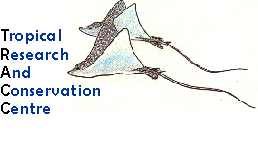|
|
|
|
Economics of blast fishing
|
 |
|
|
|
|
|
In southwest Sulawesi, Indonesia, an area directly comparable to Sabah or Kalimantan, net annual income per fisher dropped from US$6,450 to less than US$550. | |
| The motorised larger scale operations have had a wider choice of reefs over a wider area and it is only recently that all the unprotected offshore reefs have become as blasted as the reefs nearer to shore. The opportunity cost of this widespread destruction is high. Fisheries production in Sabah has dropped by 70% over the last 20 years; net income from each hectare of reef has fallen by 80%. | ||
EFFECTS ON THE TOURISM INDUSTRY
|
With the increasing awareness of the importance of biodiversity and our natural heritage, more and more countries are venturing into ecotourism -- a means of sustaining existing tourism industries while conserving the precious natural beauty and resources.
In many countries -- including several states in Malaysia -- ecotourism is proving to be a successful venture, with the help of government and private agencies who are stepping up environmental education and conservation to increase public awareness.
|
|
|||||||
| Unfortunately, in most coastal areas in Sabah, all reefs that may have been suitable for new tourism developments have been severely damaged by destructive fishing, which has cost the state over US$55,000 per year in lost revenues for each tourist facility that could have been built. Existing tourist resorts are struggling as the number of visitors decline; these sites are no longer an attraction because the surrounding reefs have been destroyed. |
|BLAST FISHING| |BLAST FISHING FREQUENCY| |ECONOMICS| |BLAST FISHING REGULATIONS| |EFFECTS ON BIODIVERSITY|
|EFFECTS ON CORAL REEFS| |ECOTOURISM PROTECTION|

![]()